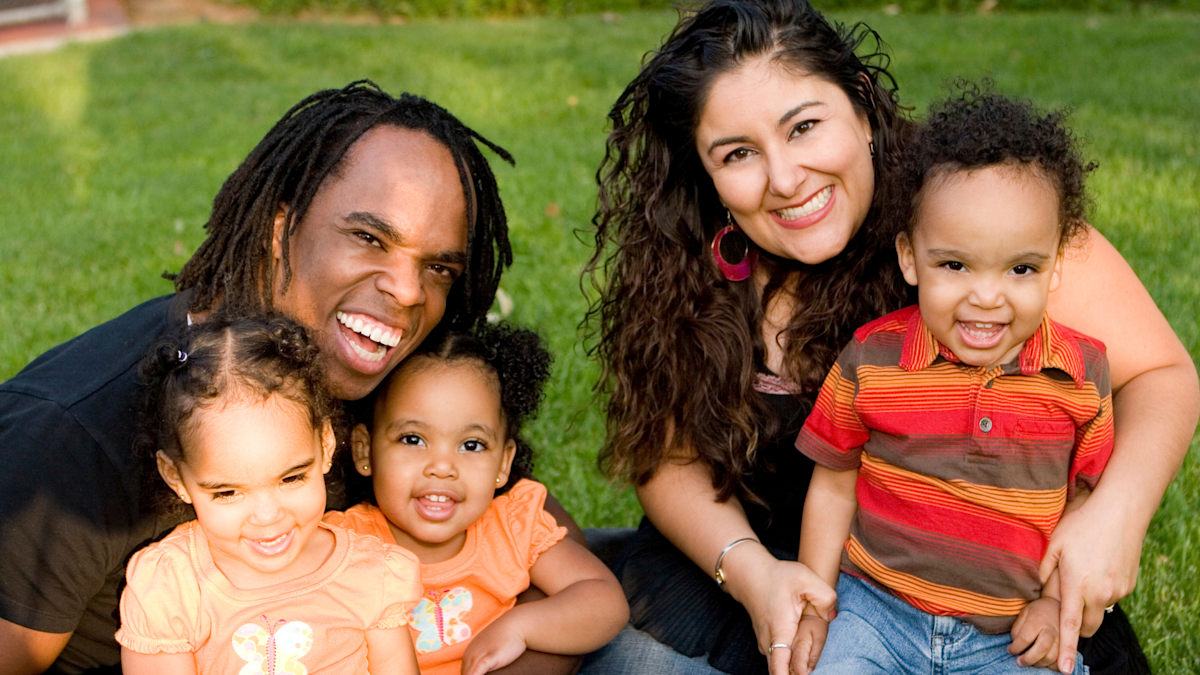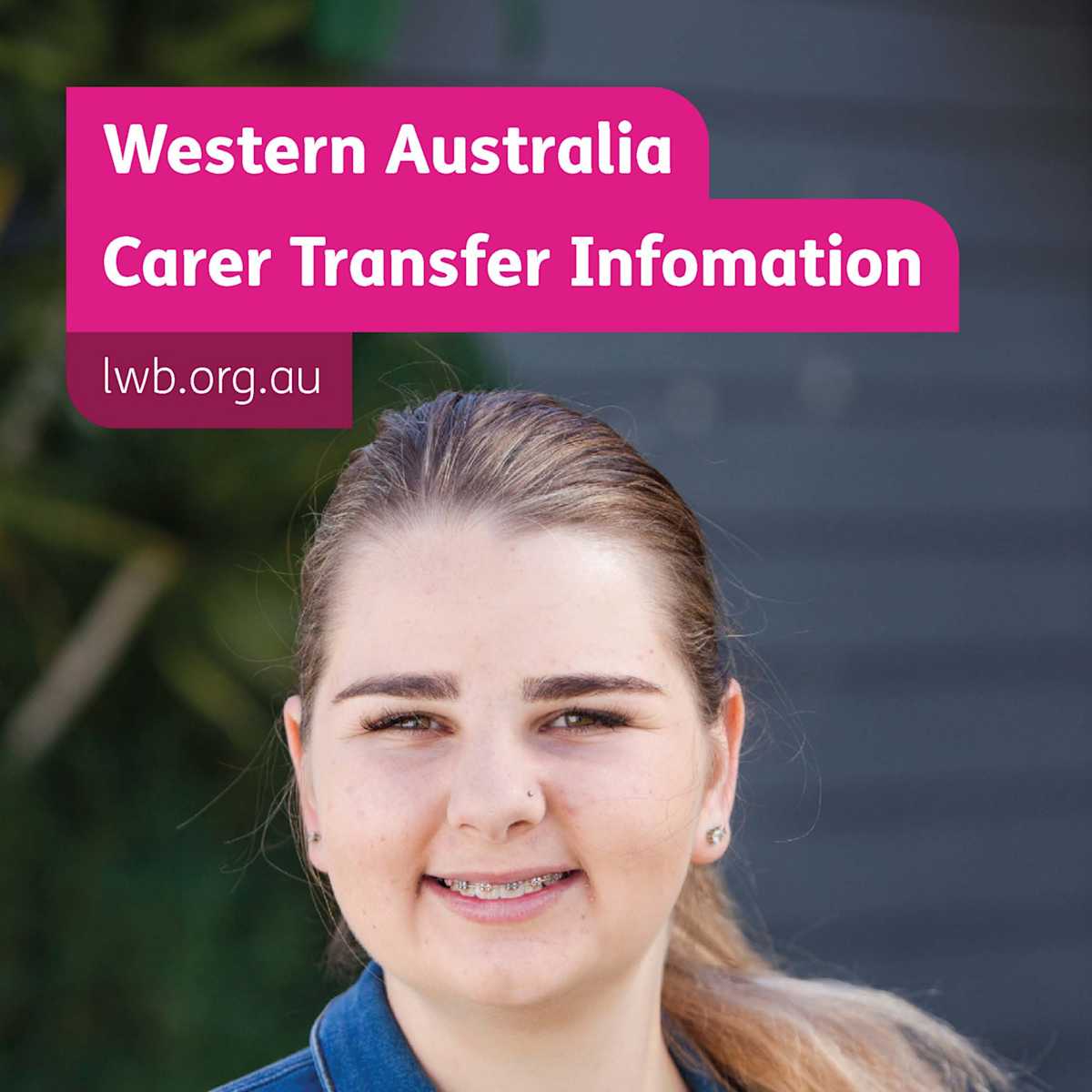
There is currently a critical need to provide foster care in Perth and across Western Australia. Providing care for children in WA with Life Without Barriers means you are never alone in your journey.
With almost 50,000 children across Australia who need care each year, fostering a child is primarily about offering a safe, supportive and nurturing home environment.
Are you ready to become a foster carer?
Speak to one of our dedicated team about starting your journey to becoming a foster carer today.
Types of care in Western Australia
Becoming a carer in Western Australia
If you want to be a foster carer in Western Australia, there are some boxes you need to tick.
Age
Foster carers need to be at least 18 years old, but ideally 25 years-old or older with relevant life experience.
Spare room
A dedicated spare room for a young person is required. Siblings (in care) may share a room if it is safe and appropriate to do so. Exceptions may be considered in kinship care.
Age of your own children
We know that it is important to be able to meet every child in the household’s needs, and for this reason, we know it is best to match children with carers whose children are older than they are. If you have a child under the age of 18 months, we ask that you wait to start your fostering journey once your youngest child turns 2.
Residency
Foster carers need to have the right to permanently live in Australia. This means you need to either be a permanent resident or citizen, or hold a New Zealand citizenship with a special class 444 visa.
Driver’s licence/vehicle
If you are applying to foster with a partner, you will need to have been in a stable relationship for at least two years. Both potential carers will need to be willing participants in the process of becoming a carer.
Partnership requirements
If you are applying to provide foster care with a partner, you will need to have been in a stable relationship for at least two years. Both potential carers will need to be willing participants in the process of becoming a carer.
IVF/adoption considerations
If you (or your partner) are pregnant, attempting to fall pregnant or involved in fertility, surrogacy or adoption processes, foster care applications are not able to proceed at this time. If you have recently completed assisted fertility treatment, we would ask that you wait 12 months to consider starting your fostering journey, or until your youngest child is 2 years of age.
Smoking
We ask foster carers to abstain from smoking inside the home or vehicle when any child is present.
Health
Foster carers should be in good physical and emotional health and able to meet the needs of children in their care.
Shared parenting
If you and an ex-partner currently share parenting responsibility of children, your child’s other parent must be in full agreement with fostering occurring in your home.
Working With Children Check clearance*
All applicants and household members over 18 must be eligible for a Working With Children Check Clearance. A household member is generally anyone who visits for 21 days, or more, in a year.
National Criminal Record Check clearance
All applicants and household members aged 16 years and older are required by law to undergo a National Police Check. There are some criminal charges that may prevent you from becoming a foster carer, and others that may require further exploration in order to assess your suitability.
Community Services Check
All applicants and household members, aged 16 years and over, are required to undergo a Community Services Check. This is a review of relevant information about an individual held by Communities WA.
*What is a Working With Children Check? A Working With Children Check (WWCC) is a compulsory screening strategy in Western Australia and the Christmas and Cocos (Keeling) Islands, required by a person if they engage in certain paid or unpaid work with children, described as ‘child-related work’ under the WWC Act. The WWC Check includes a Nationally Coordinated Criminal History Check, but is different from a National Police Certificate because it involves the ongoing collection and assessment of information that is relevant to whether a child may be exposed to a risk of harm should a person engage in child-related work.
Could you be a carer?
If you have been thinking about becoming a foster carer, our foster care self-assessment quiz is a great place to start!


What can I expect as a carer?
Caring for a child in Western Australia with Life Without Barriers means you will receive training, help and support from day one of your journey.
Training
Life Without Barriers will provide you with a range of learning opportunities suited to your own level of experience and the needs of the children in your care. This includes access to a large range of eLearning options on topics such as child development, understanding trauma and stress, and healthy living.
CARE: We are committed to ensuring carers and staff support children in a way that creates conditions for positive change.
Therapeutic Crisis Intervention (TCI): This evidence-informed model is used to teach staff and carers how to help children handle stress in constructive ways.
Family involved: Protecting a child’s first and most enduring relationships.
Support
Providing care for children in Western Australia with Life Without Barriers means you are never alone in your journey. It can be difficult to understand some of the experiences children bring with them, so it’s important that you feel supported and confident in your role as a carer. You will have access to 24/7 support for advice and direction in challenging situations. Our specialist staff also work with children and carers where additional support is needed.
Aside from the support Life Without Barriers has to offer, all carers in Western Australia can access information and advocacy from Foster Care Association of WA.
MOCKINGBIRD FAMILY™
MOCKINGBIRD FAMILY™ unites 6 to 10 foster and/or kinship carer homes called Satellite Families in a local community called a Constellation, supported by an experienced carer who takes on the role of Hub Home Provider.
The Hub Home Provider is an employed team member who supports carers through providing connection, information, training and emotional support.
Financial support
As a carer, you will receive a tax-free allowance to support the individual needs of children placed in your care. Foster carers are volunteers, so this is not considered income and all potential carers need to show they are financially stable when they start their fostering journey. It is important to note that funds provided are for items that the child in your care will need, such as:
Food
Clothing and footwear
Daily travel expenses
Car restraints
Gifts
Educational expenses
Hobbies
Learn more about supports from the WA gov.
Carer networking
Talking with other foster carers is sometimes the best form of support. Through regular events and online communities we create opportunities for carers like you to share concerns, celebrate successes and provide feedback to the Life Without Barriers team. Training programs also offer a great way to connect with other carers of varying experience.
Got more questions? Get in touch today
You can contact our friendly foster care team today and we will come back to you as soon as possible.
Looking to switch from another agency?
Find all the information you need to know about transferring between agencies in Western Australia.
